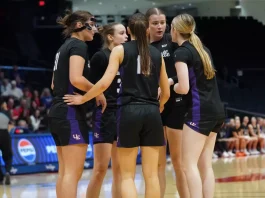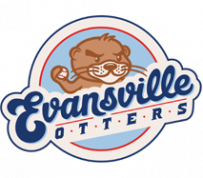SB 139 now goes to the Governor’s desk to be signed into law.
The Kentucky House of Representatives today unanimously passed Senate Bill 139, which would amend the definition of livestock in Kentucky to include horses and equines. The bill now moves to Governor Matt Bevin for his signature. Securing livestock classification has been among the top policy priorities of the Kentucky Equine Education Project since its 2004 creation.
“SB 139 is an important step forward for the Kentucky horse industry, and legislative success like this is a product of years of commitment and hard work,†said KEEP Chairman Corey Johnsen. “Many KEEP members have been instrumental in getting this legislation to this point, but we owe particular recognition to Frank Penn for being a tireless leader and advocate on this issue from the start.â€
“Having horses and equines included as livestock in Kentucky law has been a key policy priority for KEEP since its founding over 12 years ago,†said Penn, KEEP Board member and Chairman of the organization’s Equine Sales Tax Equity Task Force. “I applaud the Kentucky legislature for their unanimous support of SB 139 and recognizing horses’ rightful place along side other agriculture commodities in Kentucky.â€
Senator Robin Webb, an accomplished horsewoman from Carter County, sponsored the bill, a measure she’s worked on for several years.
“The continued and consistent designation of equine as livestock is imperative for the ownership and utilization of the animals that we have relied on for centuries,†Webb said. “The equine industry contributes to the quality of life for Kentuckians and the economic bottom line of the Commonwealth.â€
SB 139 does not address the state’s 6-percent sales tax on feed, bedding and equipment used for horses. All other livestock are exempt for sales tax on those necessities. However, passage of the bill does strengthen the case for tax equity.
Rep. Susan Westrom, whose district is in Fayette County, said the measure is a major step toward putting horses on equal footing with other livestock.
“I am pleased to know that my colleagues finally understand that the equine industry in their own backyard was never treated ‘business friendly’ by the state,†Westrom said.
Speaker Pro Tem David Osborne of Oldham County said the action “highlights the importance of the horse industry to our overall agricultural economy.â€
“Finally, horses in Kentucky have received the proper designation as livestock,†he said. “For years, our statutes have been unclear with the designation of horses, and as a result one of our signature industries has suffered. This designation will clear the way for tax equity and other legal parity within the entire equine industry, which will strengthen the future for years to come.
“Additionally, despite some confusion, this bill in no way opens the door for horse slaughter in Kentucky, or weakens horse protection laws. In fact, on this same day, the Legislature gave final passage to House Bill 200 to make it easier for local officials to intervene and remove horses in abuse and neglect cases. These bills combined will greatly benefit the entire equine industry in Kentucky, and help to solidify our global role as the Horse Capital of the World.â€
Osborne, an owner of both Thoroughbreds and Saddlebreds, said the bill affords protections to horse farmers in ways that might surprise people.
“You can’t be included in an agricultural conservation district unless you are a livestock and agricultural enterprise,†he said. “Well, horses were not included in that definition until now. It gives you certain advantages and legal standings as far as zoning, city annexation, things like that…. Right now, it’s a crime to cut somebody’s fences if they have cattle or other livestock. But horses are not defined in that statute.â€
Rep. Richard Heath of Mayfield, head of the House Agriculture Committee, said SB 139 makes an overdue correction.
“As Chair of the House Agriculture Committee, I am pleased to lend a hand to the equine industry in Kentucky and vote to classify horses as livestock, which brings long-overdue fairness and equity,†he said. “I am proud to support every type of farm in Kentucky, whether it be a family farm, a dairy farm, a crop farm, or a horse farm. Today we finally righted a wrong: Horses belong in the livestock classification where they are overseen by the Department of Agriculture, and not in the companion animal or pet classification.â€
Other members of the House Agriculture Committee voiced equally strong endorsements.
“Horses in Kentucky are a staple, and in Central Kentucky we not only have scores of internationally renowned farms but we have the tourist and competition draw of the Kentucky Horse Park,†said Rep. Phillip Pratt of Georgetown. “After all these years of interested parties attempting to make this change, I’m proud to be a part of the new voice in Kentucky that respects and takes action to protect this multi- billion dollar industry that employs tens of thousands of hard-working Kentuckians. Our action today will ensure the success of the industry for generations to come.â€
“As a cattle farmer with my husband, I am keenly aware of the previous livestock classification issues in Kentucky,†said Rep. Kim King of Harrodsburg. “In the past, horses have been left out of this important classification, and it has taken its toll on the industry. However, with this passage, Kentucky now accurately classifies horses as livestock. This move will create the foundation for further progress, including tax implications, and will offer the protections that the equine industry deserves. I commend the leadership shown by all involved to create parity that should have been granted years ago.â€
“This legislation is a crucial step forward in recognizing the importance that the equine industry has in our Commonwealth,†said Rep. Dean Schamore of Hardinsburg. “Senate Bill 139 affords protection for the industry not currently included in statute, and I am glad to support this significant measure.â€
Rep. Wilson Stone, whose district includes Ellis Park, called it “a good day when we can recognize Kentucky livestock.â€
“The stockmen of Kentucky have historically and traditionally considered horses as part of their livestock,†Stone said. “Sometimes they are the livestock in which owners take the most pride. SB 139 simply shows respect to horses and stockmen by placing horses in our statutes where livestock is referenced.â€
Said Majority Floor Leader Damon Thayer of Scott County: “I’m pleased that SB 139 has passed the House and is headed to Governor Bevin’s desk. Redefining horses as livestock is an appropriate step to take in the Horse Capital of the World.â€
“The legislature’s understanding of the importance of this issue is demonstrated by its unanimous approval in the Senate and the House,†said Joe Clabes, KEEP executive director. “We’d like to thank and congratulate Sen. Webb for introducing consensus legislation and guiding it through the legislative process. We also appreciated the support we received from (Kentucky Agriculture) Commissioner Ryan Quarles, who attend both Committee hearings to support SB 139. It is gratifying to see such strong bipartisan support for Kentucky’s horse industry.â€
ABOUT KEEP
The Kentucky Equine Education Project is a not-for-profit grassroots organization created in 2004 to preserve, promote and protect Kentucky’s signature horse industry. Support for KEEP’s activity comes directly from the horse industry and horse industry supporters. To learn more about how you can become a member or make a contribution, please visit www.horseswork.com.



